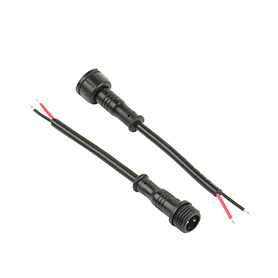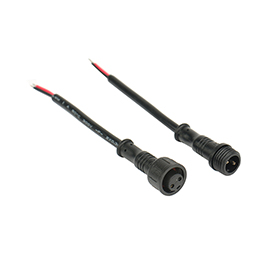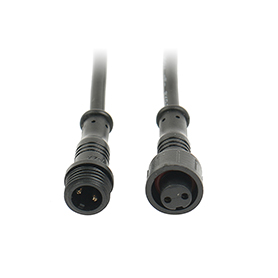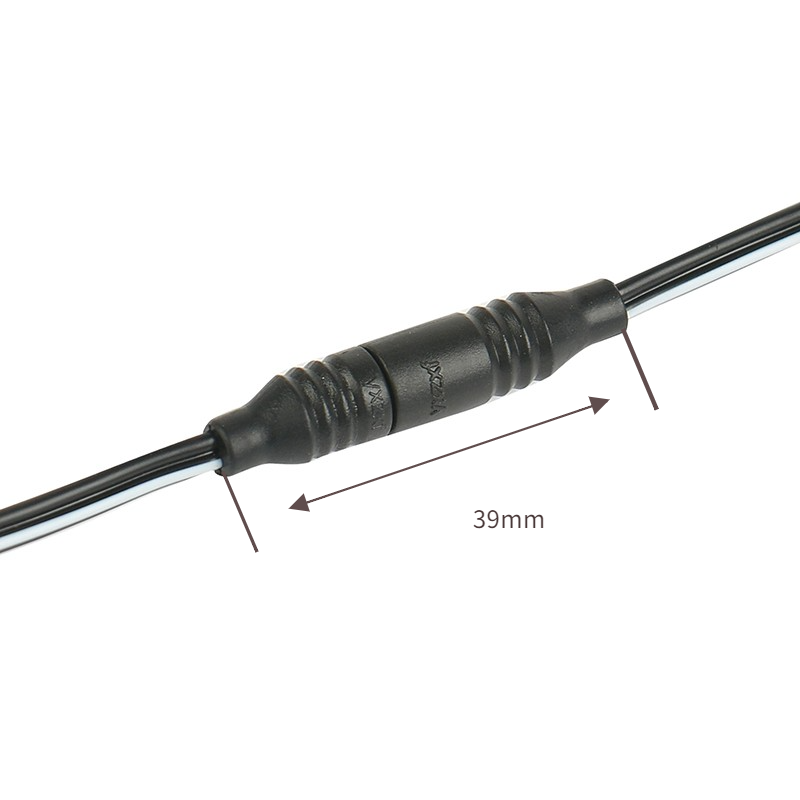News


News

Unveiling the waterproof signal connector: How to keep the signal stable in harsh environments
Release time:2024-10-29
viewed:497
Signal connectors play a vital role in the connection of electronic equipment and systems. In certain specific environments, such as outdoor adventures, underwater operations, military applications, etc., ordinary signal connectors often cannot meet the needs. At this time, waterproof signal connectors came into being.

A waterproof signal connector is a special electronic component that can ensure the stability and reliability of signal transmission in humid, wet, dusty and other harsh environments. This connector uses special sealing materials and designs to effectively block the intrusion of water vapor, liquids and pollutants, thereby ensuring the normal operation of the connection parts in harsh environments.
A waterproof signal connector usually consists of a plug and a socket. The plug part usually has a needle-shaped or sheet-shaped contact for connecting with the corresponding contact in the socket. The socket part usually has an elastic contact sheet or a spring contact to ensure close contact with the plug part. At the same time, the connector housing is usually made of waterproof materials, such as rubber, plastic, etc., to further enhance its waterproof performance.

1. Excellent waterproof performance
The biggest advantage of waterproof signal connectors is their excellent waterproof performance. By using special sealing materials and designs, this connector can effectively block the intrusion of water vapor and liquid, thereby ensuring the normal operation of the connection parts in a humid environment. This is especially important for equipment that needs to work underwater or is often exposed to water.
2. Stable signal transmission
During the design and manufacturing process, waterproof signal connectors usually use high-quality conductor materials and contacts to ensure the stability and reliability of signal transmission. This connector can reduce the loss and interference of signals during transmission, thereby improving the overall performance of the equipment.
3. Strong corrosion resistance
Since waterproof signal connectors often need to work in harsh environments, their corrosion resistance is also particularly important. High-quality waterproof signal connectors are usually made of corrosion-resistant materials, such as stainless steel, gold plating, etc., to ensure that they can still work normally in corrosive environments such as acid, alkali, and salt spray.
4. Strong seismic resistance
In some applications, such as military, aerospace and other fields, equipment needs to withstand strong vibration and impact. By adopting special structures and connection methods, waterproof signal connectors can effectively reduce the risk of loose connections or damage caused by vibration, thereby improving the seismic resistance of equipment.
5. Easy to install and maintain
Waterproof signal connectors usually use plug-in connection, making the installation and maintenance process more convenient and quick. Users can complete the installation and removal of connectors without using complex tools or equipment, thereby improving the ease of use and maintenance efficiency of the equipment.
6. Multiple specifications and interface options
In order to meet the needs of different types of equipment and systems, waterproof signal connectors provide a variety of specifications and interface options. Whether it is a low-frequency signal or a high-frequency signal, whether it is a circular interface or a rectangular interface, users can find a connector that suits them to meet application needs.

1. Outdoor adventure equipment
Outdoor adventure equipment such as GPS locators, walkie-talkies, cameras, etc. often need to work in harsh environments such as humidity and dust. The use of waterproof signal connectors can ensure the normal operation of these devices in harsh environments and improve the reliability and durability of the equipment.
2. Underwater operation equipment
Underwater operation equipment such as submersibles, underwater robots, underwater cameras, etc. need to work underwater for a long time. The use of waterproof signal connectors can ensure the stability and reliability of signal transmission of these devices underwater, thereby improving the overall performance and service life of the equipment.
3. Military applications
Military equipment such as radars, communication equipment, missile launch systems, etc. need to withstand strong vibrations and shocks, and often need to work in harsh environments. The use of waterproof signal connectors can ensure the normal operation of these devices in harsh environments and improve the seismic resistance and reliability of the equipment.
4. Aerospace applications
Aerospace equipment such as satellites, rockets, and aircraft need to withstand extremely high temperatures and pressures, and often need to work in extreme environments. The use of waterproof signal connectors can ensure the stability and reliability of signal transmission of these devices in extreme environments, thereby improving the overall performance and safety of the equipment.
5. Industrial automation and robotics
In the field of industrial automation and robotics, equipment needs to be frequently connected to various sensors, actuators, etc. The use of waterproof signal connectors can ensure the normal operation of these connections in harsh environments such as humidity and dust, and improve the reliability and stability of the equipment.
6. Medical equipment
Medical equipment such as electrocardiographs, monitors, ultrasound machines, etc. need to ensure the accuracy and stability of signals. The use of waterproof signal connectors can ensure the normal operation of these devices in humid environments and improve the reliability and safety of the equipment.

When choosing a waterproof signal connector, users need to consider the following factors:
1. Waterproof level
The waterproof level is an important indicator to measure the waterproof performance of the connector. Users need to choose the appropriate waterproof level according to the working environment and requirements of the equipment. Common waterproof levels include IP65, IP67, IP68, etc., among which IP68 means that the connector can work for a long time at a certain depth underwater.
2. Signal transmission performance
Users need to choose the appropriate signal transmission performance and frequency range according to the signal transmission requirements of the equipment. For high-frequency signal transmission, it is necessary to choose a connector with low loss and high stability.
3. Corrosion resistance
Users need to choose a connector made of suitable corrosion-resistant materials according to the working environment of the equipment. For corrosive environments such as acid, alkali, and salt spray, it is necessary to choose a connector made of corrosion-resistant materials such as stainless steel and gold plating.
4. Anti-seismic performance
For equipment that needs to withstand strong vibration and impact, users need to choose a connector with strong anti-seismic performance. This can be achieved by choosing a connector with a special structure and connection method.
5. Brand and quality
Users need to choose connectors produced by well-known brands and high-quality manufacturers to ensure the quality and reliability of the product. At the same time, users also need to pay attention to the certification and testing of the product to ensure that the product meets the relevant standards and requirements.
Waterproof signal connector is an important electronic component that ensures the stability and reliability of signal transmission in harsh environments. By adopting special sealing materials and designs, this connector can effectively block the intrusion of water vapor, liquids and pollutants, thereby ensuring the normal operation of the connection parts in harsh environments. Using waterproof signal connectors can bring many benefits, such as excellent waterproof performance, stable signal transmission, strong corrosion resistance, strong seismic performance, etc. At the same time, waterproof signal connectors have broad application prospects in outdoor adventures, underwater operations, military applications and other fields. When choosing a high-quality waterproof signal connector, users need to consider factors such as waterproof grade, signal transmission performance, corrosion resistance, seismic performance, brand and quality.